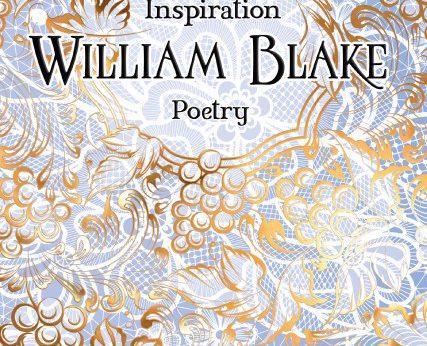The legacy of William Blake
An article by a former pupil of the LFKL and a current undergraduate at the university of Harvard
Have you ever been reading a boring old book, or a good old poem alone at home? You are busy yawning when suddenly you realize it’s a little more interesting than a few seconds ago. Indeed, you have successfully related to the topic or message that the author was trying to convey. All of a sudden, you are captivated by the words and you keep on reading and reading and reading …
This only happened because the author is still relevant and you relate to his writing, hence, finding it suddenly interesting.
In this article, I would like to write about William Blake, a visionary English poet, painter and engraver, born in 1757 . William Blake was often described as a radical. During my research on this iconic romantic poet I came across a poem of his, “London”, published in Songs of Experience in 1794. At first glance, I didn’t get it and asked myself: ” Can I still read William Blake today? “. After a bit of reflection I saw many similarities between his poem and our current era and understood that Yes, I can read it! I just wanted to share some insights with all of the readers of the Daily Blog on why I believe that still is.
It all begins in 1757 when William Blake was born into disturbed political times (with many political currents). The spirit of the French revolution is omnipresent and the American colonies, tired of English imperialism are rising. This is what William’s writings reflect. There are riots (the Gordon riots), Blake caught in a mob witnesses the riots then writes about it. This is somewhat similar to the riots of 2011 in London where a mob protested over a death caused by police violence. Another aspect of these times was the huge impact of the industrial revolution with machines replacing workers (huge mills threatening working people). Nowadays, we have a technological revolution, where workers are threatened of being replaced by AI’s. Blake’s writings also involved the social ills of the time (e.g. Appalling child labor with the chimney sweepers; it is comparable to the child labor in third world countries) and also the issues with the high level of prostitution at the time. Some women were forced to work in that domain to make a living. This can be compared to the current homeless situation in London, where many people are unable to make a living. According to The Guardian: “A record number of people are sleeping rough in London, with charities reporting a spike in street homelessness. Figures show that 3,103 people were found sleeping rough in the capital between July and September 2018 – the first time the total has exceeded 3,000 in a three-month period”. As we can see William Blake’s poems still apply to the current London metropolis, in his works he described a city in a dire economic situation, yet it still appears to be the case. His works cannot be qualified as decadent, indeed they are still well known and they reflect both on the society of the 18/19 th century and on the 21 st century London.
At the time, there were very significant inequalities, London was a city of the rich and the poor, and it still is. That is why the works of William Blake are still modern. In his poem, “London” Blake says in the second verse “near where the charter’d Thames”, he means that it if someone is there it is because he is allowed by charter. He insinuates that everything has to be agreed through an administrative negotiation. He is saying that the government is trying to gain control over everything. This can be put into perspective in our contemporary times by the usage of CCTV in London. The government is still trying to control everything.
I believe (and so should you😊) that William Blake’s works are still contemporary, considering they still apply to many domains which are of controversy lately. The charter at his time is the equivalent of cameras and treaties in our era, furthermore his poems and works are primarily located in a very unequal city, with huge economic and social contrasts. This is what has been happening to London of late. Anyway, all I wanted to say was try reading a few of this artist’s poems. They are very hard to understand, however once you do, it truly makes you realize how much William Blake’s writings are eternal because his works will always reveal society as it is. Just to end on a brighter note, I would like to quote him even though it has nothing to do with the rest of the article: “No bird soars too high if he soars with his own wings”, basically always try to do your best but don’t fear asking for help.
Thank you,
Lucas



